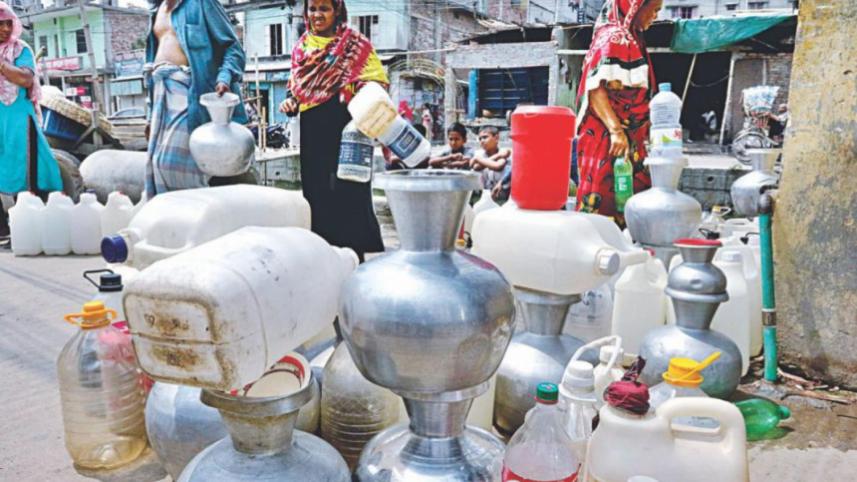Raising water price again will be devastating

This is how a pensioner from Old Dhaka reacted to the news of a proposal to raise water tariff by Dhaka Wasa, "Is this a joke that I will have to pay more for the smelly, yellow water that flows out of my tap?" If we scan through the performance record of this organisation, it will be easy to comprehend the frustration of the elderly client reacting to the possibility of a water tariff hike by up to 40 percent. Other Wasa clients that this daily has spoken to made similar complaints about the quality of water that did not even come regularly, questioning the rationale behind the move. This would be Wasa's third price hike in three years, and 16th in 13 years. While it kept raising the price, it remained unresponsive to the pledge of providing safe drinking water to the vast majority of the capital's 20 million residents.
Its latest bid to increase the tariff—by 38.8 percent to Tk 21 per unit (1,000 litres) for residential use, and by 31 percent to Tk 55 per unit for commercial purposes—would rather bolster its impression of an organisation trying to widen its profit margin at the expense of people's sufferings. For instance, in the 2020-21 fiscal year, Wasa logged a profit of Tk 49.6 crore, up by seven percent year-on-year, according to its audited financial report. At the end of 2020-21, its retained earnings stood at a staggering Tk 892 crore. (Retained earnings are the portion of a company's cumulative profit that is held or retained and saved for future use, particularly for investment purposes.) Experts say since Wasa is already making profits every fiscal year, there can be no justification for raising the price again, especially as it will cause further distress to the people of fixed income amid the economic pain caused by the pandemic and high inflations.
But, as usual, the Wasa managing director, when contacted by our correspondent, remained in denial regarding making any profit. He claimed that its production cost was higher than the tariff, with the government making up the difference with subsidy, and that the subsidy was being counted as profit. He asserted that if the interest, depreciation and other costs were added, profits would not be seen in the financial statement.
Experts, however, are not ready to accept the explanation given by the Wasa boss. Instead of putting the burden on ordinary clients, they have suggested reducing the costs of production and addressing the system loss, among other measures. Whatever the Dhaka Wasa authorities decide to do to reduce the burden of subsidies—or maybe even to make some profit in the end—it cannot be by bleeding the clients further, that too for a product that they cannot ensure the quality of.



 For all latest news, follow The Daily Star's Google News channel.
For all latest news, follow The Daily Star's Google News channel.
Comments